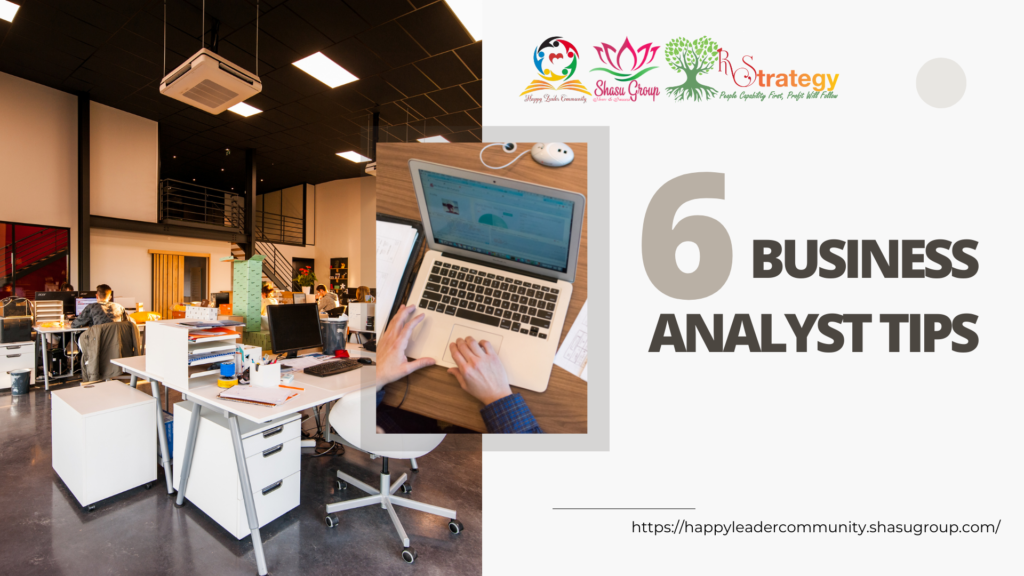I. Analysis Skills
What are Analytical Skills?
Analytical skills are the capacity to recognize a problem, investigate for pertinent information, and come up with a logical solution. They are valuable abilities in a variety of fields, but they are especially crucial in finance when analyzing financial products.
Analytical skills are the capacity to gather data and analyze it thoroughly. They refer to problem-solving abilities and the ability to make decisions based on information gathered.
When finding patterns, brainstorming ideas, observing data, collecting data, evaluating data, integrating new information, synthesizing information, and making situation-specific decisions, analytical skills are used.
Xem thêm về các nhóm của chúng tôi tại đây
Types of Analytical Skills
The following are the five categories of skills that are necessary for success in a variety of jobs and industries:
1. Communication:
An underrated skill is the ability to communicate the analysis that has been conducted. It’s pointless to be able to identify problems and come up with remedies if the results and conclusions can’t be successfully communicated to decision-makers.
The analysis’ findings may need to be given orally in the form of a presentation or a meeting. The results of the analysis may need to be provided in writing, either in the form of a report or an email. As a result, when it comes to building comprehensive analytical skills, communication skills are crucial.
2. Creativity:
Another important skill is the ability to think creatively. Many problems necessitate “out-the-box” thinking to find the best solution. It is critical to be able to conceive of unique ideas because the obvious approach is not always the most successful.
3. Critical Thinking:
Critical thinking is crucial for developing good overall analytical skills. It is the process of objectively analyzing a complex problem in order to make a decision.
Critical thinkers who are effective are able to think clearly and rationally, as well as recognize the logical relationships between data pieces and concepts. Critical thinking is a crucial talent to master in order to identify sensible solutions.
4. Data Analysis:
Data is very important in all disciplines, specifically, the ability to analyze large volumes of data and identify patterns and trends. All professions rely heavily on data, particularly the capacity to evaluate vast amounts of data and spot patterns and trends. As a result, understanding statistics and quantitative analysis is becoming increasingly important. As popular concepts like technical trading and quant-investing gain traction, data analysis is becoming more prevalent in finance.
Quantitative analysis necessitates not just the ability to recognize patterns in data, but also the ability to communicate the findings to decision-makers, which ties into the communication part of analytical skills.
5. Research:
Patience and curiosity are required while using analytical skills. It’s exceedingly improbable that a problem will be solved effectively if it’s solved swiftly without taking into account all essential information. As a result, developing an effective solution necessitates spending time learning more about the problem before attempting to fix it.
Collecting information and pertinent data, assembling it, and then analyzing it are all part of the research process. For being able to apply excellent analytical skills, it is necessary to collect data and extensively research a topic.
Tham gia cộng đồng học tập suốt đời cùng chúng tôi tại Happy Leader Community
6 Business Analyst Tips

1. Recognize Why You’re Looking
Knowing why you’re doing your business analysis is one of the simplest adjustments you can make. Are you conducting a standard business check-up or trying to pinpoint the source of a specific problem?
If it turns out that you weren’t the one who opted to do business analysis, inquire about it with the person who assigned you the work. You can begin to focus on some of the more significant elements without exerting any more effort once you know what your analysis’ goal is.
2. Utilize a wide range of tools
Business analysts have a plethora of tools at their disposal – so many, in fact, that it’s nearly hard not to overlook a couple. If you want to improve your business analysis skills, mix a variety of tools and strategies to achieve the “largest picture” possible.
PESTLE analysis, SWOT analysis, and Porter’s Five Forces analysis are a few of our favorites. Do you have a set of tools that you use to conduct business analysis?
3. Consider Positives and Negatives
While your business analysis may impress your superiors or make you feel better if it solely demonstrates that everything is running smoothly, you can become a far better business analyst simply by weighing the pros and problems equally. Exploring both sides of the picture will allow your company to capitalize on its strengths while improving its weaknesses.
4. Look for Underlying Causes
If you see that your company is underperforming due to a lack of sales, don’t just stop there: investigate further! Try to figure out why your things aren’t selling — are your marketing creating enough of an impression? Is your sales funnel in bad shape? In general, rather than focusing on the problems themselves, you should seek out the underlying reasons. You won’t have to continually undoing the harm if you can fix the root problem once and for all.
5. Understand Your Organization
When conducting business analysis, it’s also critical to have a thorough understanding of your corporation. You should be aware of your company’s major aims and pitfalls so that you know where to look for opportunities and what to avoid. Understanding your company will also enable you to draw conclusions that will aid you in achieving the mission that your company set out to accomplish.
6. Present your conclusions in an effective manner
Finally, make certain that the conclusions you arrive at are suitable, clear, and meaningful. If this requires transforming raw data into more natural visualizations or filtering out some of your work’s less relevant results, go ahead and do it. This will not only make it easy for you to return to your analysis and comprehend it, but it will also make life easier for anyone who has to examine the results.
II. Judgment Skills
Whether you’re leading a small team in a large organization or an up-and-coming start-up, being a leader is one of the most hardest jobs you’ll ever have.
You must be able to defend the interests of the firm while also meeting the demands of your personnel.
You must also conduct accurate performance evaluations and determine who will be promoted and who will be demoted. Above all, you must be correct.
As a leader, you add value to your team by not only being decisive but also being correct.
4 Ways to Improve Judgment as a Leader

1. Collect relevant information
Before making a decision, exhaust all of your options. Determine how much time you have before making a decision and utilize it to learn as much as possible about the problem.
2. Think Economically
Do your own study, collect data, and figure out what you already know.
Consult your bosses and coworkers. All rungs of the organizational ladder contain valuable information and wisdom.
Consider the relationship between the problem and previous issues, as well as what has been done to resolve them. What’s changed since then? Is there a way to solve this problem in a similar way? What are the additional considerations that must be taken into account?
Thinking economically is determining whether the benefit outweighs the expense.
When faced with a choice, you usually have several possibilities. To determine which choice is the best, weigh the advantages and disadvantages of each.
3. Allow for Beneficial Distractions
Constantly pondering the issue does not always yield a solution.
You’re probably already anxious, exhausted, and not in the best mental state to make a decision.
Allow yourself to be sidetracked and take a break from the task if you aren’t under time constraints.
Take a short walk, talk to a coworker about something other than work, and nap. You must refresh your mental resources in order to make the greatest decision possible.
4. Be Aware of Your Personal Biases
Personal prejudices affect everyone. We all have them, whether we like to admit it or not.
This does not, however, imply that we are bound to make decisions based on our own prejudices for the rest of our lives.
Before you make a conclusion based on all of the information you’ve gathered, ask yourself if:
· An unfounded assumption has no bearing on your judgment.
· Personal preference has no bearing on your selection.
· Your choice is based on a scientific understanding of what will work.
III. The top 10 skills to have Success to lead
1. Complex problem solution
2. Critical thinking
3. creativity
4. human Resource management
5. Coordination with others
6. Emotional intelligence
7. Judgment and decision-making
8. Service Orientation
9. Negotiating skills
10. Cognitive flexibility
Collection & Edit by Marketing Dept from Team Happy Leader Community – Shasu Group
Reference:
- https://aboutleaders.com/decision-making-skills/
- https://corporatefinanceinstitute.com/resources/careers/soft-skills/analytical-skills/
- https://pestleanalysis.com/improve-business-analysis-skills/
- https://www.hausvoneden.com/sustainability/10-skills-to-be-successful-in-2020/
Follow us:
- Facebook: https://www.facebook.com/HappyLeaderCommunity
- Website: https://happyleadercommunity.shasugroup.com
Our Services
- Business Consultant: https://consultant.shasugroup.com/
- Executive, Business, Performance, Leadership Coaching & Mentoring: https://www.shasugroup.com/coaching-mentoring-consulting
- Training Solution: https://training.shasugroup.com/
- Fundraising & M&A Consultant: http://invest.shasugroup.com/
- International Sales Connection Service: http://export.shasugroup.com/
- Headhunter(Recruitment Service): https://hrstrategyvn.shasugroup.com/










